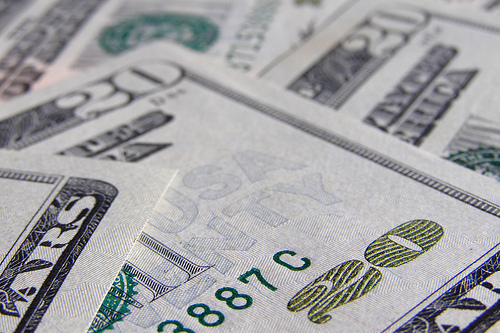Should You Use Your Retirement Savings to Pay Off Debt?
When you’re in a financial bind, it can be tempting to think about all of the assets you have and how you can use them to support you in the short term. This is especially true if you’re receiving harassing phone calls from creditors.
Making the Creditor Calls Stop: Should I Use My Retirement Funds?
Perhaps a creditor has convinced you that getting started on a payment plan can allow you to get back on track, and desperate to stop the phone calls, you consider pulling some funds out of your retirement account in order to make that first payment.
You might come across the idea of using your retirement accounts and borrowing against them in order to pay off debts innocently, but you need to realize all the potential implications of moving forward with this. This can be really tempting when you’re facing a financial struggle and it feels like you have no options.
Exemptions in Bankruptcy
If you’re in a financial bind, you might be thinking that you’ll have to give everything up if you eventually file bankruptcy. It is true that if you do have assets and you decide to file bankruptcy, some of these may be used to pay off creditors. What’s important for you to research ahead of time, however, are whether you can use any exemptions. It is not true that the bankruptcy trustee can take everything you own out from under you in order to pay down creditors. Although certain pieces of property are accessible through the bankruptcy court, both federal and state laws may protect certain items or accounts, including your retirement accounts.
Retirement accounts are almost always exempt in a personal bankruptcy case. This means you can file a case, discharge debt, and emerge on the other side with your retirement intact.
What Happens to My Retirement Funds in Bankruptcy?
Years spent building up your retirement savings, however, can easily fall apart if you attempt to cash out of a retirement account. This option can be even more tempting if you have recently lost your job and you have the option of rolling over your IRA to a new job or pulling the funds out. Bear in mind that there are also potential tax consequences of withdrawing the money from an IRA so you should always speak to your accountant first before doing this. You should weigh down how much you might be able to earn by keeping the money invested in an IRA against the cost associated with carrying credit card debt.
Reasons to Leave Your Retirement Funds Untouched
Taking money out of your retirement fund in order to pay down debt can also lead to other negative consequences. For example, if you pull the funds out of your retirement fund in order to get a creditor off your back, this seems like it addresses the issue in the short term but it can actually cause more problems down the road.
For example, if you are in so much debt that you are unable to get on top of the matter or if you withdraw so much out of your retirement account that you are facing tax penalties or other fees, you may find yourself worse off than you were before.
Another major benefit of leaving the funds inside your retirement account is that these funds are almost always protected in the form of bankruptcy exemptions. This means that even if you ultimately do need to file bankruptcy, your retirement funds will stay intact, giving you peace of mind that you will have access to those funds in the future even if you have to give up other assets in the discharge process. As you can see, there are significant costs associated with using your retirement funds in order to pay down debts.
It is generally not a good idea.





 Updated June 1, 2016.
Updated June 1, 2016.  Dealing with the death of a spouse is difficult enough even without the financial issues involved – like the debt you spouse left behind. Managing debt while grieving can seem insurmountable. Many surviving spouses must learn how to navigate the payment of their deceased spouses’ debts, including learning which debts affect the surviving spouse and which debts the surviving spouse is not responsible for paying. So, what happens to your debt when you die? And what does that mean for your spouse?
Dealing with the death of a spouse is difficult enough even without the financial issues involved – like the debt you spouse left behind. Managing debt while grieving can seem insurmountable. Many surviving spouses must learn how to navigate the payment of their deceased spouses’ debts, including learning which debts affect the surviving spouse and which debts the surviving spouse is not responsible for paying. So, what happens to your debt when you die? And what does that mean for your spouse? Last updated March 30, 2017.
Last updated March 30, 2017.
